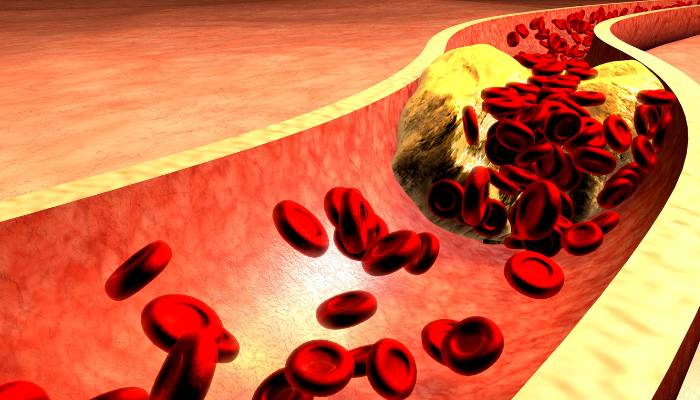
High cholesterol levels can increase the risk of developing fatty deposits in the arteries, which can lead to a heart attack or stroke. Taking a cholesterol test at regular intervals, hence, is important as they can help to identify individuals at risk of developing heart disease or stroke.
What is Cholesterol ?
Cholesterol, a waxy, fat-like molecule present in your body’s cells, helps in building cell walls, producing hormones and aiding digestion. It is carried through your bloodstream by proteins known as lipoproteins.
Who needs to get checked for cholesterol ?
Most adults over the age of 20 should have their cholesterol levels checked every 4 to 6 years. People in their 40s may have a higher risk for heart disease and stroke, so it is especially important for those in this age group to have their cholesterol levels checked regularly. Also, people with a higher risk of developing heart disease, such as those with a family history, should have their cholesterol tested more frequently.
Cholesterol screening benefits
Knowing your cholesterol levels can help you take steps to prevent common conditions like heart disease and stroke, which could lead to death. Cholesterol tests are usually part of a routine physical exam. The cholesterol test cost is less than $100 and often includes other basic tests that can help detect any health issues. It’s important to know that these tests are not painful, invasive or difficult at home—they just require you to swallow a pill or take blood from your arm.
How often should you be tested?
How often you should be tested depends on your age and family history. Your doctor could advise that you get tested every five to ten years if you’re between the ages of 20 and 39. If you are 40 or older, a more frequent screening is recommended—every 4 years if there is no history of heart disease in your family, or every 3 years if there is a history of heart disease in your family. A cholesterol test should be performed more frequently if you have diabetes or high blood pressure because these disorders raise your chance of developing heart disease.
What does your cholesterol level mean for you?
Like all fats and lipids in the body, cholesterol is transported around in your blood by different types of particles. There are two types of cholesterol: high-density lipoprotein (HDL) cholesterol and low-density lipoprotein (LDL) cholesterol. HDLs aid the breakdown of fat, while LDLs transport fats from one place to another in your body.
High levels of LDLs
If you have high levels of LDLs or if those levels are getting higher over time—like they do when you eat a lot of saturated fat—it could mean that you have heart disease risk factors or symptoms. It is often referred to as “bad” cholesterol because high levels can build up in the walls of the arteries, leading to narrowing of the arteries (atherosclerosis) and an increased risk of heart disease, stroke, and other health problems.
High levels of triglycerides
High levels of triglycerides or low levels of HDLs in your bloodstream can cause problems related to heart health and increase your risk for stroke or heart attack, among other illnesses. Treatment for high triglyceride and LDL levels usually involves lifestyle changes, such as eating a healthy diet, exercising regularly, and avoiding smoking. In some cases medications may also be used to help lower triglyceride and LDL levels.
Lowering the cholesterol
Your risk of heart disease may increase if your cholesterol levels are high. Your doctor can help you lower these levels with lifestyle changes and medication.
Lifestyle changes that may help lower your cholesterol include:
- Eating a diet low in saturated fat, trans fat, and cholesterol.
- Eating plenty of fruits, vegetables, whole grains and other fiber-rich foods.
- Quitting smoking. The habit affects your IQ levels as well.
- Losing excess weight if you are overweight or obese.
- Maintaining a healthy weight through physical activity.
- Reporting any family history of premature heart disease to your doctor.
If lifestyle changes aren’t enough to bring down your LDL (bad) cholesterol level after 2–3 months, talk to your doctor about taking statin medications such as simvastatin (Zocor), atorvastatin (Lipitor), rosuvastatin (Crestor), pravastatin sodium salt (Pravachol) or pitavastatin sodium salt (Livalo).
Conclusion
There are many reasons why you should have your cholesterol levels tested. For example, it helps determine if you’re at risk for heart disease or stroke and therefore need to take action. Because high cholesterol levels can lead to serious health problems, it’s important to know if yours is too high so that you can make changes before it’s too late!

Lifebing is driven by an unrelenting passion for promoting health and well-being, our team is wholly committed to curating exceptional content and immersive experiences.
